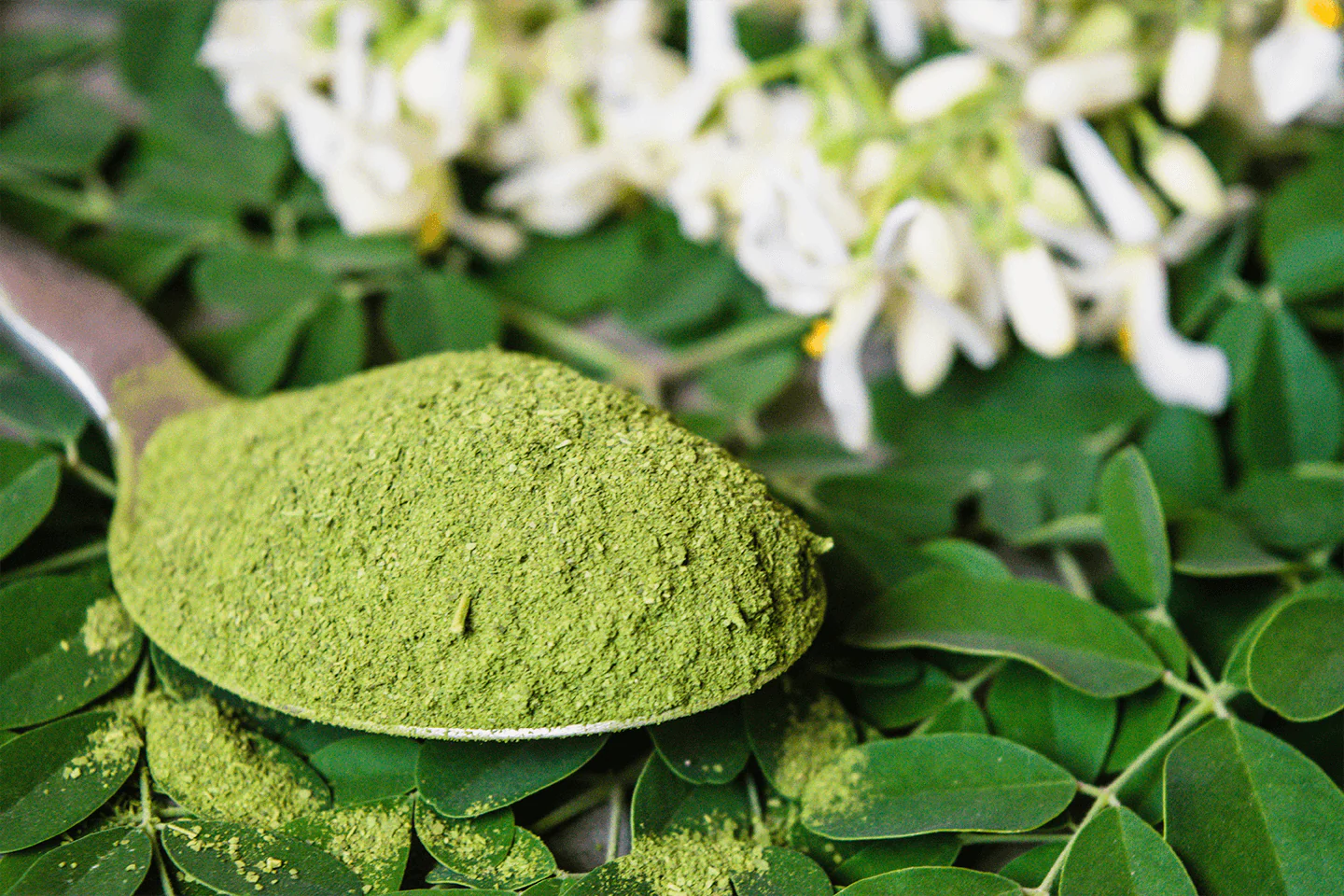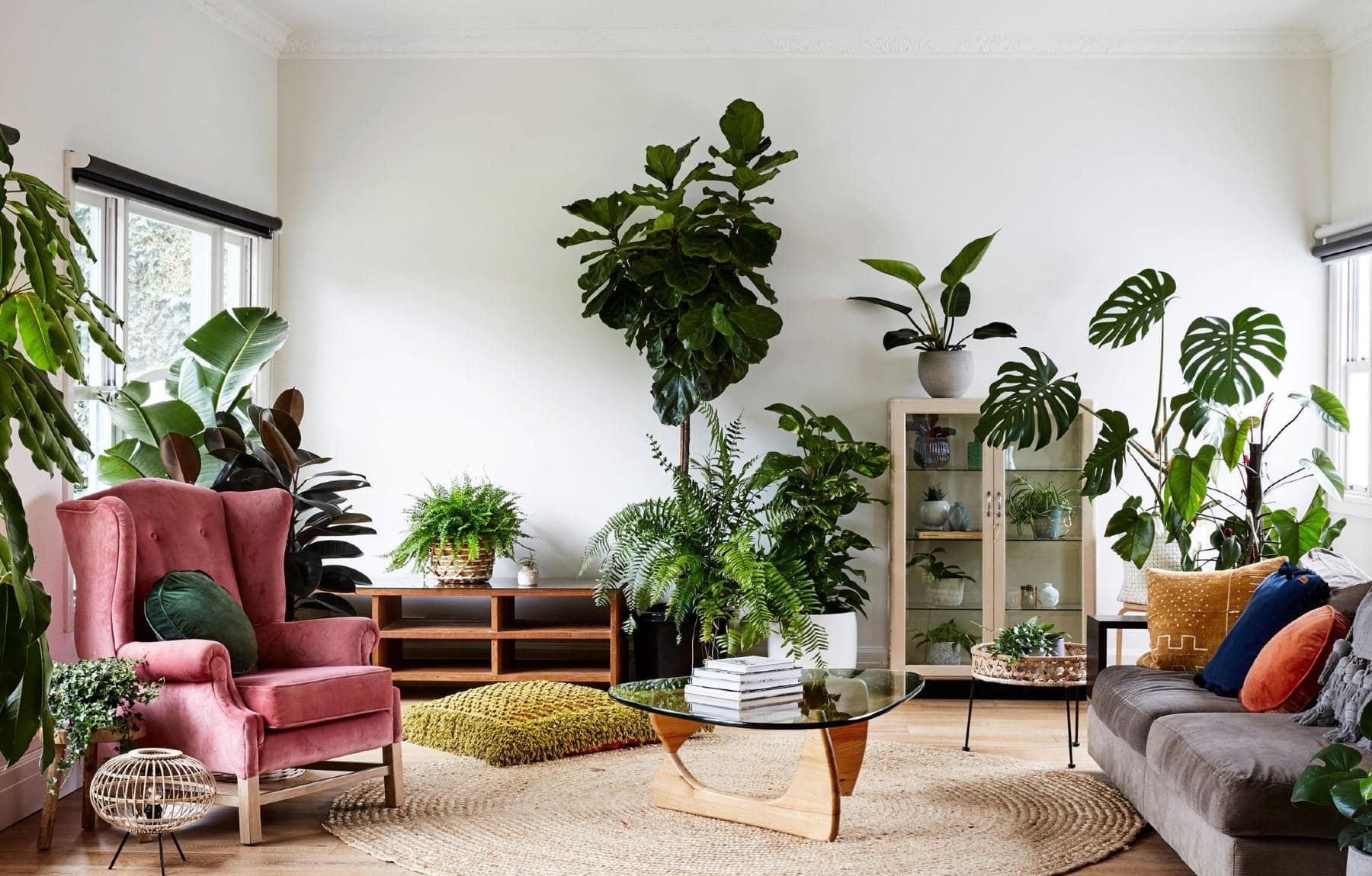Hunza Valley: Experience the Majestic Beauty
Nestled amidst the majestic peaks of the Karakoram Mountains in northern Pakistan, Hunza Valley stands as a true testament to the beauty and allure of nature. With its breathtaking landscapes, vibrant culture, and rich history, this hidden gem beckons travelers to embark on a journey of discovery like no other.
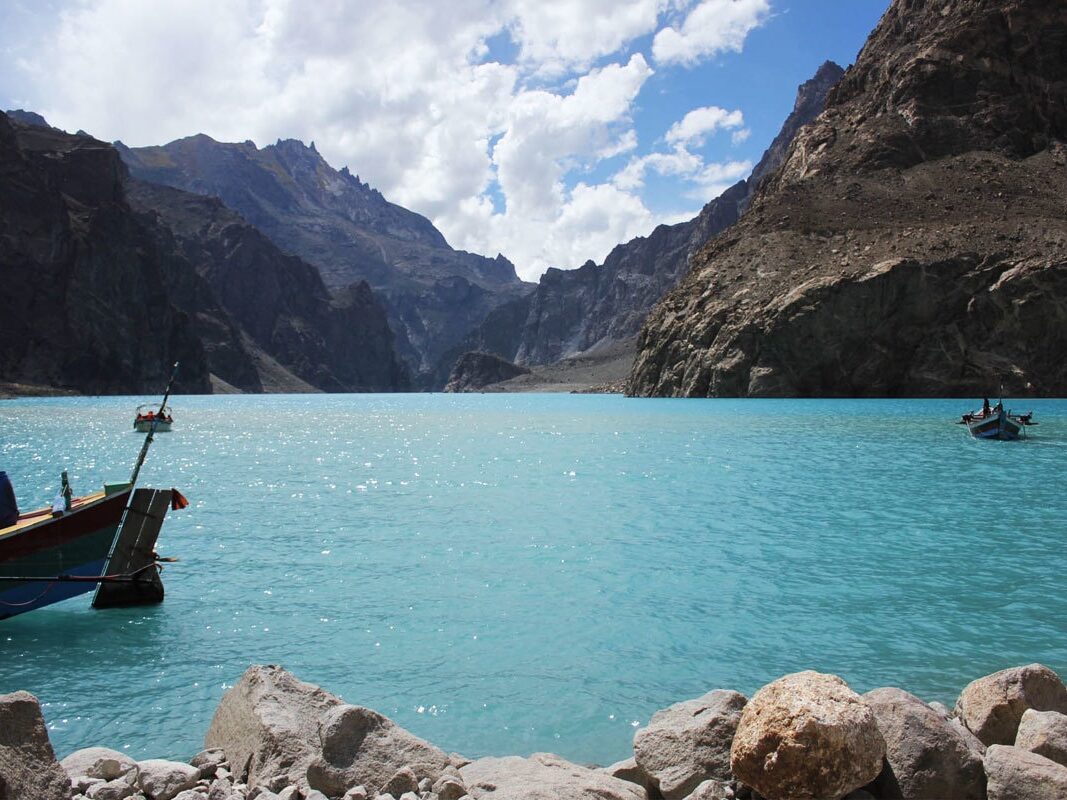
Hunza Valley: Discovering the Beauty of Hunza Valley, Pakistan
A Glimpse into Hunza’s Splendor
Hunza Valley is a paradise of awe-inspiring landscapes, ranging from towering mountains to serene lakes. The region’s crown jewel, Rakaposhi, stands tall as if touching the heavens, while Attabad Lake’s turquoise waters provide a soothing contrast to the rugged terrain.
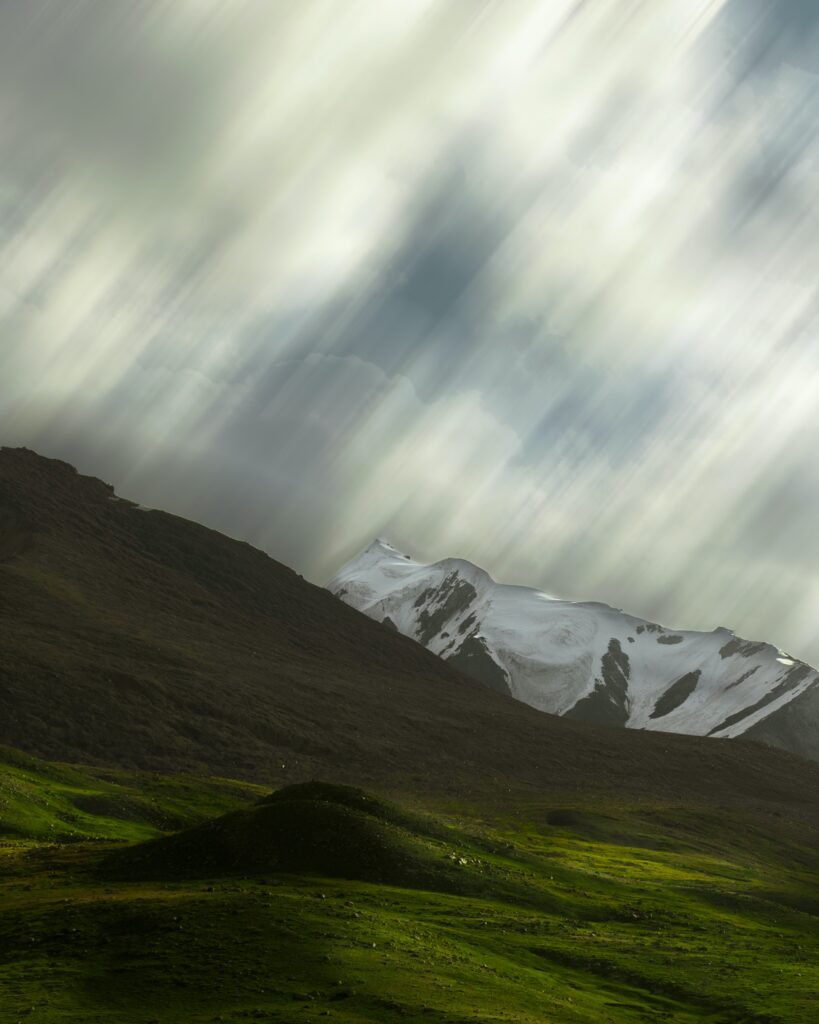
Exploration and Adventure
For adventure seekers, Hunza Valley offers a playground of exciting activities. From trekking amidst the glaciers to witnessing the dazzling autumn colors, each season brings its unique charm and opportunities for exploration.
Local Delicacies and Culinary Delights
Hunza’s cuisine is a delightful journey in itself. Savor local delicacies like chapshuro, a savory meat stew, and indulge in the sweetness of apricots that thrive in the valley’s fertile orchards.
Preserving the Fragile Ecosystem
With its pristine environment, Hunza Valley has gained recognition for its efforts in sustainable tourism. The community’s commitment to preserving the fragile ecosystem ensures that generations to come can experience its untouched beauty.
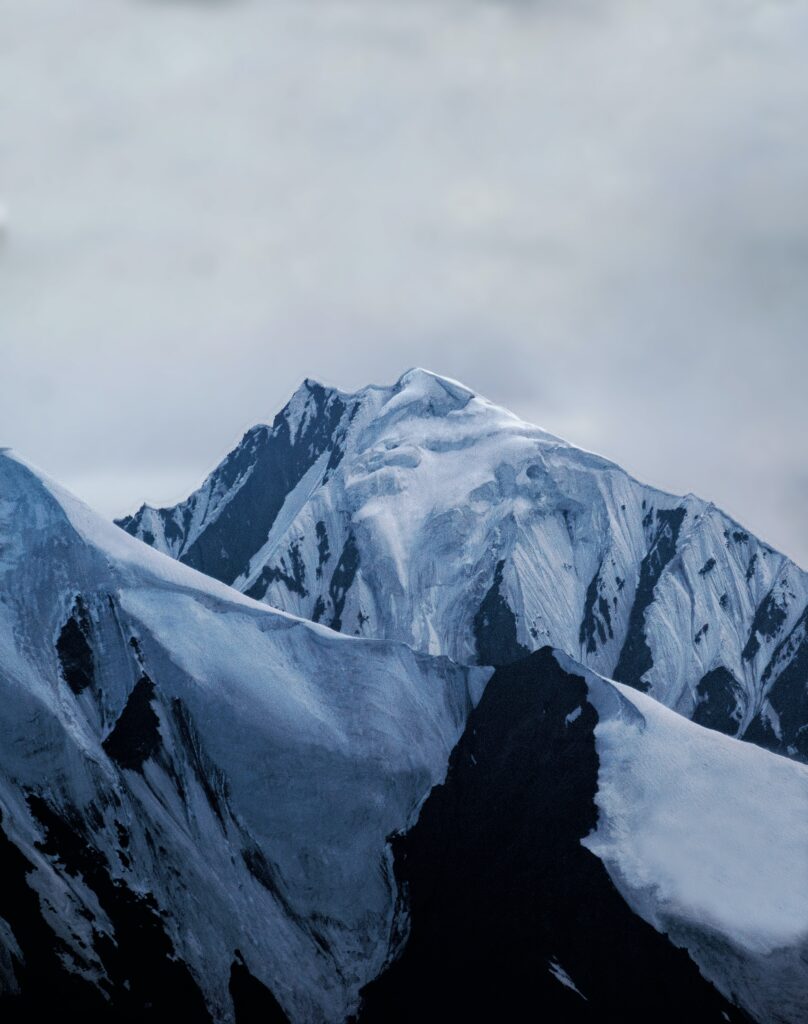
The best way to travel Hunza from Islamabad, Capital of Pakistan
The journey from Islamabad to Hunza Valley offers stunning landscapes and various travel options. Here are some of the best ways to travel from Islamabad to Hunza:
By Air and Road:
Flight to Gilgit
You can take a flight from Islamabad to Gilgit, the nearest airport to Hunza. From Gilgit, you can hire a local taxi or use public transportation to reach Hunza. Flights are subject to weather conditions, so it’s advisable to check schedules and availability in advance.
By Road:
Karakoram Highway (KKH):
The Karakoram Highway is a renowned route that connects Islamabad to Gilgit and continues to Hunza. The road journey is an adventure in itself, offering breathtaking views of the Karakoram Range, Indus River, and ancient Silk Route towns. The distance is around 600 kilometers and takes approximately 18 to 20 hours, depending on road conditions and stops.
Public Buses:
Several bus companies operate on the Islamabad-Gilgit route. Public buses are budget-friendly but can be less comfortable for long journeys.
Private Cars and Taxis:
Renting a private car or hiring a taxi gives you more control over your journey. It’s a convenient option for families or groups.
By Road and Karakoram Express:
Karakoram Express:
This is a train service from Islamabad to Rawalpindi, followed by a road journey to Gilgit. The train offers a unique experience, and the road journey takes you through the picturesque KKH.
By Road and Naran Valley:
Naran Valley Route:
Another scenic option is to travel from Islamabad to Naran Valley by road and then continue to Hunza. Naran Valley offers beautiful landscapes, including Babusar Pass. From Naran, you can head towards Hunza via the Kaghan Valley.
By Road and Skardu (via Shigar):
Skardu Route:
If you’re seeking a more adventurous journey, you can travel from Islamabad to Skardu and then continue to Hunza via the Shigar Valley. The road journey is longer but provides an opportunity to explore the mesmerizing beauty of Skardu.
When planning your journey, consider the time of year, road conditions, and weather. Roads can be affected by weather, especially in the winter months. It’s also recommended to break your journey with overnight stops, as the road journey can be quite long.
Always check for the latest travel information, road conditions, and permits required for certain areas. Your choice of travel mode will depend on your preferences, budget, and the kind of experience you’re looking for on your way to the breathtaking Hunza Valley.
Culture of Hunza
The culture of Hunza Valley is a rich tapestry woven from centuries of history, tradition, and interaction with diverse civilizations. This remote region in the Karakoram Mountains of northern Pakistan has nurtured a unique and vibrant culture that reflects the resilience, warmth, and hospitality of its people. Here’s a glimpse into the captivating culture of Hunza:
1. Warm Hospitality:
Hunza is renowned for the warmth and friendliness of its people. Visitors are welcomed with open arms and treated as honored guests. The local population takes pride in their hospitality, making travelers feel like part of the community.
2. Languages and Communication:
The main language spoken in Hunza is Burushaski, a unique language with no known linguistic connections. Additionally, Urdu and English are widely spoken due to their importance for communication and trade.
3. Festivals and Celebrations:
Festivals are a significant part of Hunza’s culture, celebrating its traditions and heritage. The annual “Hunza Festival” is a vibrant showcase of local music, dance, crafts, and traditional sports. Religious festivals like “Nowruz” (Persian New Year) are also observed with enthusiasm.
4. Traditional Attire:
The traditional clothing of Hunza reflects the region’s cultural identity. Women often wear colorful, embroidered dresses, and men wear shalwar kameez with waistcoats. These garments are adorned with intricate embroidery that symbolizes their history and cultural narratives.
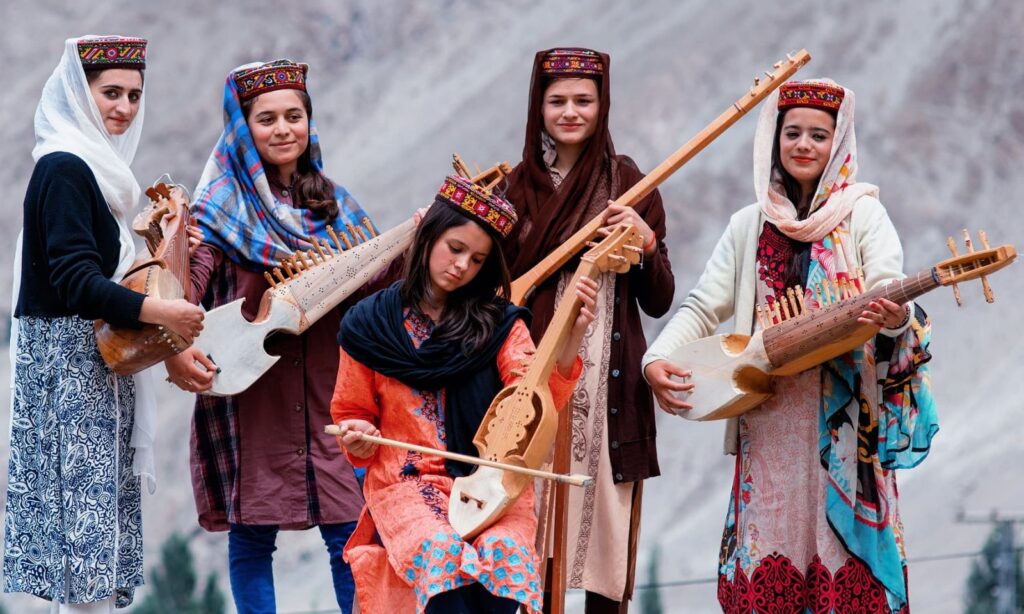
5. Cuisine:
Hunza’s cuisine is a blend of flavors and influences. Local dishes include “chapshuro” (a meat stew), “harissa” (a slow-cooked dish made from wheat and meat), and a variety of bread and dairy products. Apricots are a staple and are used to make jams, oils, and desserts.
6. Music and Dance:
Music and dance play an integral role in Hunza’s cultural expressions. Traditional instruments like the “sitar,” “daff,” and “rubab” are used to create melodious tunes. Dance performances are a lively portrayal of stories, rituals, and celebrations.
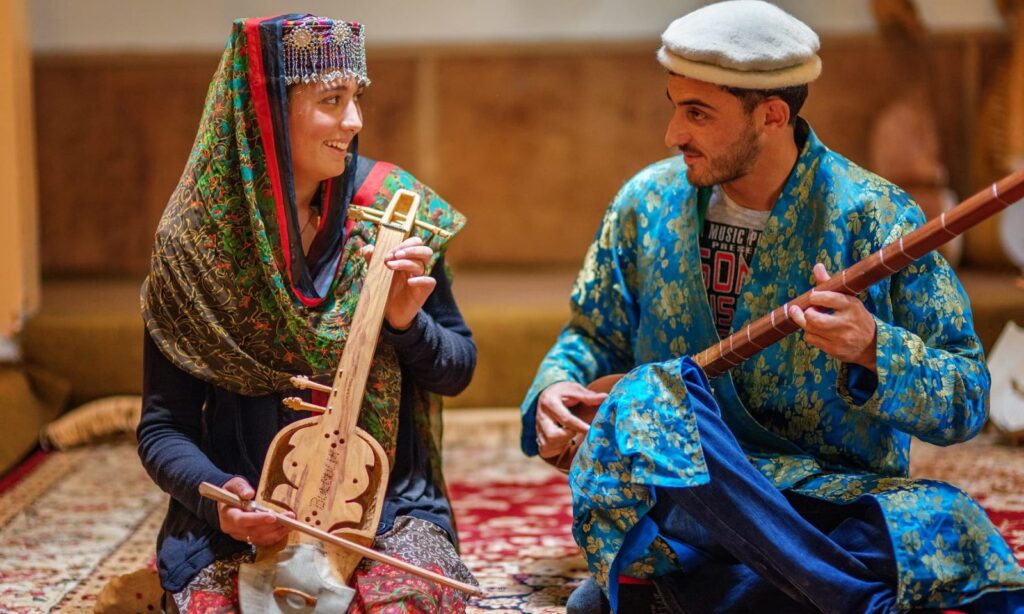
7. Craftsmanship:
Hunza is known for its intricate handicrafts, including handwoven rugs, embroidered textiles, and handmade jewelry. These crafts often incorporate symbolic motifs that carry stories of the land and its people.
8. Religion and Spirituality:
The predominant religion in Hunza is Islam, and the local culture is influenced by Sufi traditions. Religious practices are intertwined with daily life, and many architectural landmarks, such as Baltit Fort, have spiritual significance.
9. Ancient History:
Hunza boasts a rich historical legacy, with ancient ruins, petroglyphs, and forts that speak of its storied past. The region’s strategic location along the Silk Route has led to interactions with diverse cultures over centuries.
10. Celebrating Longevity:
Hunza’s reputation for the longevity of its residents has attracted interest from researchers and travelers alike. The local lifestyle, diet, and natural environment contribute to this phenomenon.
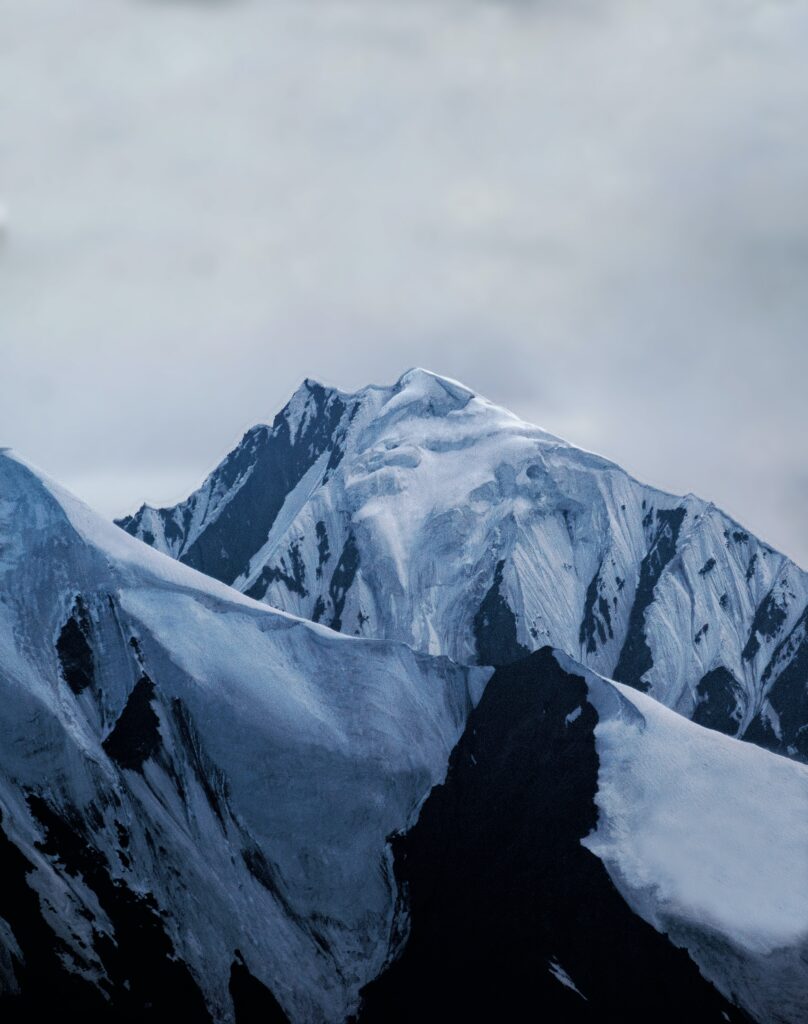
Hunza’s culture is a testament to the resilience and harmony of a community that has thrived in challenging geographical conditions. Visitors to Hunza have the opportunity to not only admire its stunning landscapes but also immerse themselves in the depth and richness of its cultural heritage.

